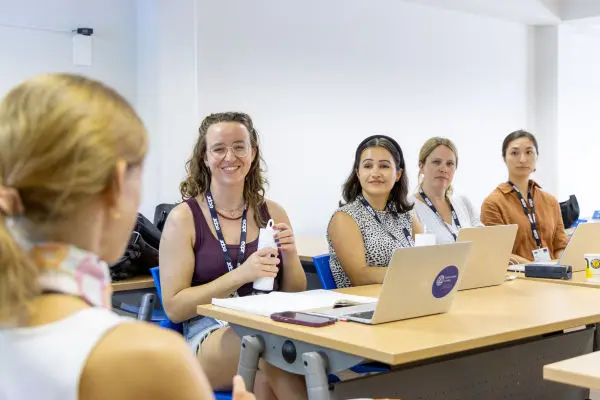
Amsterdam, Netherlands
Mental Health, Youth and Society
When:
25 June - 15 July 2026
Credits:
6 EC
Read more
Social Sciences
When:
03 July - 07 July 2023
School:
Institution:
Ecole des Hautes Etudes en Sciences Sociales
City:
Country:
Language:
English
Credits:
0 EC
Fee:
1200 EUR

The theme of the 2023 edition: "Mapping violences"
The Summer School programme will the commitments of EHESS since its foundation: critical thinking, inter-disciplinarity and inter-institutionality.
By crossing different disciplinary, thematic and cultural approaches, the aim is to endeavor to map violence, to study practices, situations, experiences of violence and their arrangement in topographic, social and mental spaces. The objective is to favour the dialogue between different perspectives of research on violence and more particularly on extreme violence. Be it political violence, state violence, wars, guerrilla wars, revolutions, oppression, massacres, and domestic violence, since it is often -in these contexts- amplified, will also be broached. How are we to observe, define and analyse these violent phenomena? What are the methodological, epistemological and ethical questions specific to these particularly sensitive and fluid objects? A pluri- and interdisciplinary, critical, prospective and cartographic programme
With most of the disciplines taught at EHESS mobilized, ie. history, sociology, anthropology, law, political studies, geography and archaeology, policies, organizations, territories, methods and resources, agents (perpetrators and victims), consequences, criminal prosecutions, and even social, political and judicial restoration will be thoroughly investigated. The place of actors, humanitarians, journalists, pundits, will also be considered in order to comprehend the distant effects, notably the media coverage and the circulation of images beyond the borders of the conflicts under scrutiny.
The Summer School will be organized around 10 thematic workshops where the students will have the opportunity to present their research and where they will be dicused along three transversal axes :
Methods and tools: How to investigate, find sources, search for witnesses, collect traces, even evidence. How to objectify and describe violent phenomena?
Analytical perspectives : From the macro perspective of historical, political, economic, regional and international conditions to the micro description of the various agents’ daily lives, the variety of sets of research scales, the situations, the individual and collective trajectories, the phenomena of representation, transmission and memory of violence will serve as the canva for the discussions.
Ethical issues : What place should researchers occupy in a field plagued by violence ? From research to testimony, through the questioning of responsibilities, what is the place of participatory ethnography in such fields?
Richard Rechtman (EHESS, Cespra) Cécile Boëx (EHESS, Césor) Leopoldo Iribarren (EHESS, Vice-President International, Anhima) Christian Ingrao (EHESS, Cespra) Masha Cerovic (EHESS, Cespra) Cloé Drieu (EHESS, Cetobac) Damien Marguet (Paris 8, ESTCA)
This summer school is mainly aimed at international master’s and doctoral students enrolled in an academic program abroad.
This summer school is conceived as a space for collective interdisciplinary discussion and aims to offer conceptual and methodological tools as well as spaces for scientific sociability. Its participants are invited to join the RICEVE network, which gathers together social science scholars confronted with different forms of extreme violence in their field or in their research. This summer school is intended to be open to actors on the bangs of the academic world, post-doctoral fellows or non-academic researchers.
Fee
1200 EUR, Registration fee
When:
03 July - 07 July 2023
School:
Institution:
Ecole des Hautes Etudes en Sciences Sociales
Language:
English
Credits:
0 EC

Amsterdam, Netherlands
When:
25 June - 15 July 2026
Credits:
6 EC
Read more

Colchester, United Kingdom
When:
16 February - 20 February 2026
Credits:
4 EC
Read more

Barcelona, Spain
When:
05 October - 08 October 2026
Credits:
0 EC
Read more